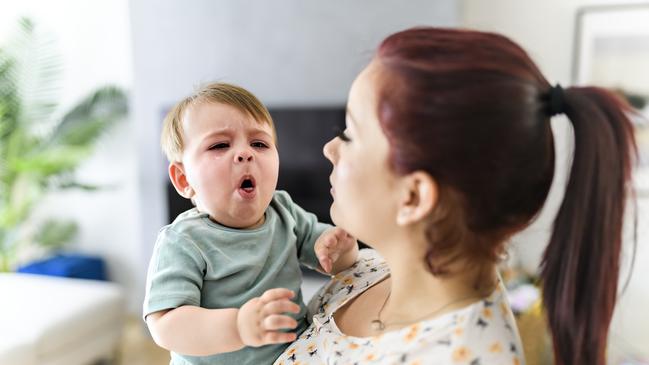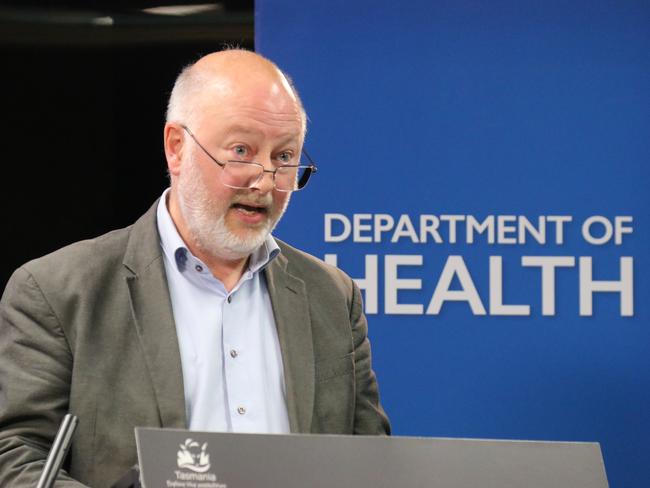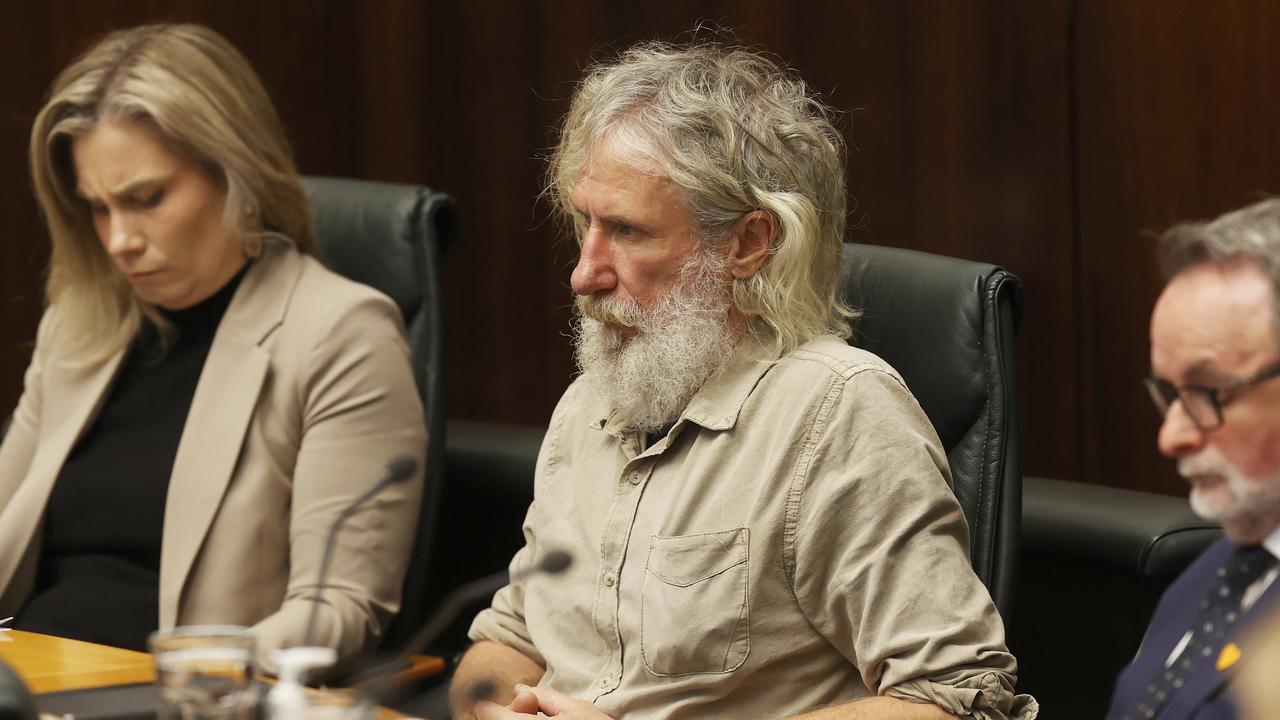Public health warning as whooping cough epidemic hits Tasmania
A highly infectious disease that can be fatal in infants is sweeping Tasmania. Here’s what you can do to minimise the risks.

Tasmania
Don't miss out on the headlines from Tasmania. Followed categories will be added to My News.
An epidemic of whooping cough, which can be fatal for babies, is sweeping Tasmania with a massive increase in cases.
So far this year there have been 249 notifications of whooping cough, up from just 12 notifications in 2023.
One Hobart school recently contacted parents about cases and warned staff it was “crucial” they remained vigilant to the disease.
Public Health director Dr Mark Veitch said infants younger than six months were at highest risk of the serious and highly infectious respiratory disease pertussis (whooping cough).
He said all Australian states and territories were currently experiencing a significant increase in whooping cough cases.
“Epidemics of whooping cough occur around every four or five years,” Dr Veitch said.

“The last epidemic period in Tasmania was in 2018 (418 cases) and 2019 (566 cases).
“Epidemics of whooping cough occur because immunity declines over time, enabling infection to spread in less immune parts of populations.
“There have been no deaths from whooping cough in Tasmania in recent years.
“Vaccination provides good protection against serious illness from whooping cough, and is particularly important for young babies.”

Dr Veitch said pregnant women should get a whooping cough vaccine in each pregnancy, ideally between 20 and 32 weeks gestation so antibodies could be passed to their baby before the baby was born to provide some protection for the first weeks of life.
Babies can then receive their own vaccines from 6 weeks, then 4 and 6 months.
“Whooping cough booster vaccines are recommended every 10 years for people who are in close contact with infants, including those who care for or live with young babies, healthcare workers and early childhood educators.” Dr Veitch said.
“If you get respiratory symptoms, stay home, and please stay away from people at higher risk, especially babies.
“If you think you or your child may have whooping cough, you can get tested though your healthcare provider, and there are antibiotics that can reduce the severity and duration of the illness.”
Tasmanian chair of the Royal Australian College of General Practitioners Dr Toby Gardner said GPs were definitely seeing more cases of whooping cough than in previous years.
“We’re actually starting to test for it a lot more than we previously have as well because whooping cough is just so dangerous for babies and can kill them and that’s why we worry about it,” he said.
“It’s horrible for parents to sit through it as well and hear that hoop that comes with it.
“In adults we call it the 100 day cough and it’s just a prolonged annoying cough.
“You’ve got to pick it up pretty early for the antibiotics to actually do anything to shorten the duration.”
Dr Gardner also urged Tasmanians to become vaccinated every 10 years to protect infants and the community.
Hobart City High School recently contacted parents after two additional cases were confirmed.
“It is crucial that we remain vigilant to ensure the safety and well-being of our students and staff,” the school said.
Originally published as Public health warning as whooping cough epidemic hits Tasmania





